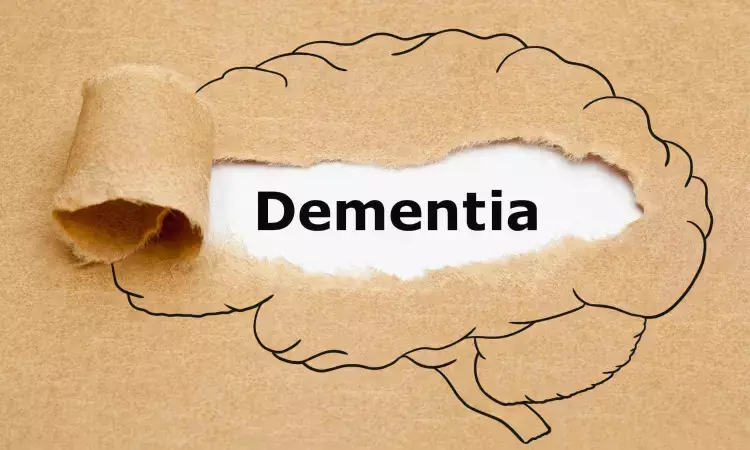- Home
- Medical news & Guidelines
- Anesthesiology
- Cardiology and CTVS
- Critical Care
- Dentistry
- Dermatology
- Diabetes and Endocrinology
- ENT
- Gastroenterology
- Medicine
- Nephrology
- Neurology
- Obstretics-Gynaecology
- Oncology
- Ophthalmology
- Orthopaedics
- Pediatrics-Neonatology
- Psychiatry
- Pulmonology
- Radiology
- Surgery
- Urology
- Laboratory Medicine
- Diet
- Nursing
- Paramedical
- Physiotherapy
- Health news
- Fact Check
- Bone Health Fact Check
- Brain Health Fact Check
- Cancer Related Fact Check
- Child Care Fact Check
- Dental and oral health fact check
- Diabetes and metabolic health fact check
- Diet and Nutrition Fact Check
- Eye and ENT Care Fact Check
- Fitness fact check
- Gut health fact check
- Heart health fact check
- Kidney health fact check
- Medical education fact check
- Men's health fact check
- Respiratory fact check
- Skin and hair care fact check
- Vaccine and Immunization fact check
- Women's health fact check
- AYUSH
- State News
- Andaman and Nicobar Islands
- Andhra Pradesh
- Arunachal Pradesh
- Assam
- Bihar
- Chandigarh
- Chattisgarh
- Dadra and Nagar Haveli
- Daman and Diu
- Delhi
- Goa
- Gujarat
- Haryana
- Himachal Pradesh
- Jammu & Kashmir
- Jharkhand
- Karnataka
- Kerala
- Ladakh
- Lakshadweep
- Madhya Pradesh
- Maharashtra
- Manipur
- Meghalaya
- Mizoram
- Nagaland
- Odisha
- Puducherry
- Punjab
- Rajasthan
- Sikkim
- Tamil Nadu
- Telangana
- Tripura
- Uttar Pradesh
- Uttrakhand
- West Bengal
- Medical Education
- Industry
People with essential tremor may have increased risk of dementia, reveals study

Dementia may be three times more common among people with essential tremor, a movement disorder that causes involuntary shaking, than the general population, according to research released on March 6, 2024. The study will be presented at the American Academy of Neurology’s 76th Annual Meeting taking place April 13-18, 2024, in person in Denver and online.
Essential tremor is the most common tremor disorder, more common than Parkinson’s disease. In addition to arm and hand tremors, people may also develop involuntary shaking of the head, jaw and voice.
“While many people living with essential tremor experience mild tremor, in some individuals, the tremor can be quite severe,” said study author Elan D. Louis, MD, MSc, at University of Texas Southwestern Medical Center in Dallas and a Fellow of the American Academy of Neurology. “Not only do tremors affect a person’s ability to complete daily tasks such writing and eating, our study suggests that people with essential tremor also have an increased risk of developing dementia.”
The study involved 222 people with essential tremor who had an average age of 79 at the start of the study. They took thinking and memory tests to determine whether they had normal cognitive skills, mild cognitive impairment or dementia at the start of the study.
Participants then had follow-up exams every 1.5 years for an average of five years.
Of this group, 168 people had normal cognitive skills, 35 had mild cognitive impairment and 19 had dementia at the start of the study.
During the study, 59 developed mild cognitive impairment and 41 developed dementia.
Researchers then compared the rate at which people developed mild cognitive impairment and dementia, as well as the prevalence of these conditions, to the rates and prevalence for the general population. They also compared participants to the rates and prevalence for people with Parkinson’s disease.
Researchers found 19% of participants had or developed dementia during the study, and each year an average of 12% of people diagnosed with mild cognitive impairment went on to develop dementia. These rates were three times higher than the rates in the general population. However, the rates were lower than those seen in people with Parkinson’s disease, a population for which dementia is more prevalent.
Researchers also found that 27% of participants had or developed mild cognitive impairment during the study, a rate almost double that of the rate of 14.5% for the general population, but less than the rate of 40% for people with Parkinson’s disease.
“While the majority of people with essential tremor will not develop dementia, our findings provide the basis for physicians to educate people with essential tremor and their families about the heightened risk, and any potential life changes likely to accompany this diagnosis,” Louis said.
Reference:
People with essential tremor may have increased risk of dementia, American Academy of Neurology, Meeting: 2024 American Academy of Neurology’s 76th Annual Meeting.
Dr Kamal Kant Kohli-MBBS, DTCD- a chest specialist with more than 30 years of practice and a flair for writing clinical articles, Dr Kamal Kant Kohli joined Medical Dialogues as a Chief Editor of Medical News. Besides writing articles, as an editor, he proofreads and verifies all the medical content published on Medical Dialogues including those coming from journals, studies,medical conferences,guidelines etc. Email: drkohli@medicaldialogues.in. Contact no. 011-43720751


